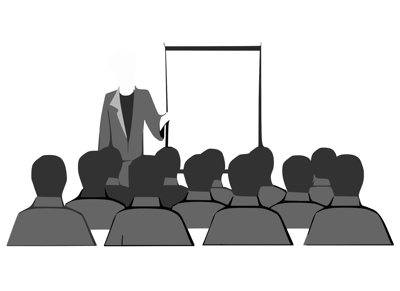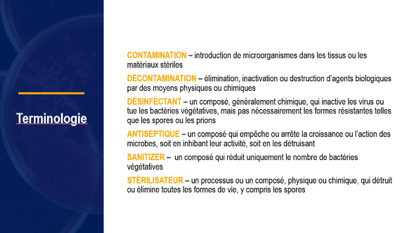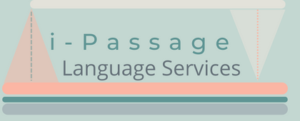
Do you need to organize a meeting with people who don’t speak the same language ?
Are you unsure as to what the language needs will be with a mixed group of people from different countries?
Do you want to cover a complex set of service needs – interpreting, translation of documents, localization, and follow-up ?
A dynamic meeting involving international partners or participants will usually have language-service needs. These may be unpredictable, depending on the language skills, the mindset and the desires of the participants. The meeting may also present cultural-translation issues. This is sometimes packaged as “localization.” However, it can be more subtle and unpredictable than any standard resource can anticipate (just watch the film, Lost in Translation, where Bill Murray plays a sardonic actor briefly in Japan to record some advertisements, and has various misadventures with interpreters, not because of language itself but because, mentally, they are never on the same “page” as him).
The multi-lingual meeting facilitator can point you in advance to what needs may arise, provide language interpreting during the meeting for your presentation and participants’ questions and comments, and help you grasp and facilitate the participants’ wishes. In short, apart from objective translation, if the success of a meeting depends on the active involvement of participants, it is essential to empower them by both interpreting and paying attention to their direct and indirect cues.
In short, multi-lingual meeting facilitation has two key features: (i) it involves various different sorts of resources; (ii) the movements between modes of communication are not pre-scripted but rather are dynamic, changing with needs as they arise.
Typical Contexts
| Context | Example | Modes/Aspects | |
| International government aid | US Department of State funding AIDS programs in Subsaharan Africa | It is essential that participants have opportunities to describe varying local conditions; presenters cannot simply be on “transmit” mode |  |
| Technical training | Corporation training technicians based in multiple countries for use of medical HazMat incinerators | Some non-Anglophone trainees will have learned using English manuals, others in translated manuals; a live meeting will require a cheatsheet juxtaposition of both for quick verification |  |
| Professional conference | International legal conference on trends in intellectual property contracts, with focus on applied skills | To practice, interactive simulations allow for creative responses to variable scenarios; the ensuing content (original argument) is by nature unpredictable, and legal terminology cited differentially; consider a live-time dynamic multilingual glossary |  |
| Marketing | A media streaming platform tests international audiences for reaction to a new in-production program | Users must be pampered upon entry, and encouraged to engage; If analysts seek a longitudinal relationship (getting feedback over time, on different episodes), users need a follow-up multilingual concierge service |  |
| Public meetings regarding the environmental impact of development projects | Offshore wind energy projects with bidding for leases supervised by federal and state authorities; can disproportionally impact local ethnolinguistic communities and Native American tribes | Follow-up threads – concrete means by which participants can express their approval/ disapproval– are a key warrant that authorities are receptive to public opinion. |  |
| Crisis management team | A small business learns it is being sued for discrimination regarding language services. Manager, attorney, the “offending” employee, etc., huddle virtually | The lawyer will efficiently focus on relevant considerations. The character of the language interaction issue, however, must be “excavated” by a sociolinguistic expert |  |
Services We Provide
We help you convene a meeting with an international and/or multi-lingual participant base. You explain to us your objective and basic format. We orient you as to the usual needs and resources provided for such meetings. We help you select and use platforms like Zoom, Google Meet and Microsoft Teams (each has specific advantages for multilingual needs). If you already have your own preferred (or contracted) service platform, we work with that.
If you or your organization does not have free or existing access to a platform, you can use ours (we function as the meeting “host” and your participants use our platform access).
On the language front, we provide interpreters, translation of support documents and review of presentation documents. On the interactional front we serve as mediators to facilitate communication.
What Sets Us Apart
 | We help you before, during and after. We help you design the meeting per your anticipated needs and by choosing technologies (many of which are free or accessible in software products you already have). We help you run the meeting in live-time. After the event, we give the language support you need for debriefing — whether that means arranging multilingual versions of or access to materials which came to light during the meeting, or facilitating follow-up queries by foreign-language participants, or internal debriefing where you figure out how to redesign better ahead of next time. We only take work we figure we can to our own satisfaction as well as yours. |  |
Frequently Asked Questions (FAQs)
Cost Basis for This Service
 | Fees are usually based on hours. For multilingual meeting facilitation, this means the actual duration of the event conducted and, optionally, for prior substantial consultations and follow-up debriefing or information gathering and distributing services. There is no fee for a preliminary discussion of a prospective collaboration. A feature of the meeting-facilitation field is that, as with marketing, the depth-of-coverage is elastic; the client can spend less or more according to her preference and budget. Contact us to discuss your project scenario; we will provide a range of options and estimated fees. |
How It Works
 | (i) Contact us to explain your needs and see if we can work together effectively (ii) Receive a quote from us based on your description of your needs (iii) Confirm that quote or request a modification to the services entailed, and convert quote to a billable invoice, or simply decline to proceed (iv) Pay in advance, if a private party, or within 30 days after the service is provided if you are a company with a formal invoice-payment system. Note: in the case of multi-lingual meeting facilitation, in addition to the core event service and pre-planned document prep, you may opt for follow-up services arising on an as-needed basis; these are not mapped into the initial quote and are billed later separately and only if they do arise. |
